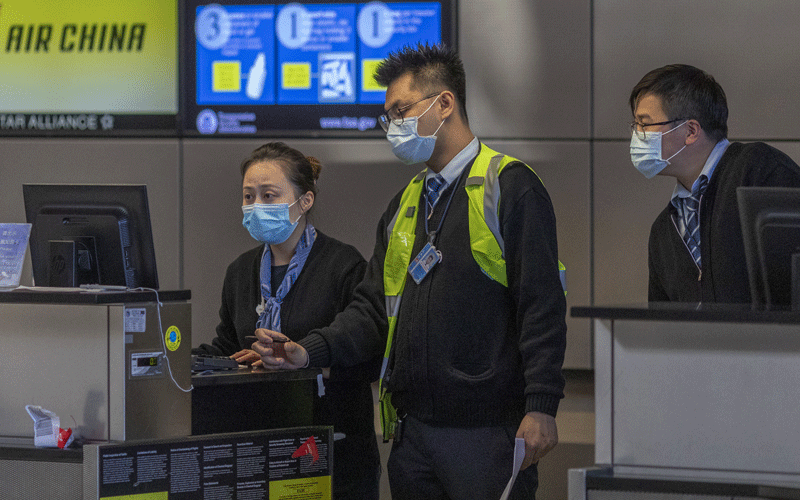Stimulus package vital as virus takes toll on economy

With the first case of coronavirus infection having been detected in Kenya, all options are now on the table.
It is clear from what has happened in other countries that the economic impact will be huge.
It is to be hoped that with all the measures being instituted to control the spread of the virus, Kenya will not have to go into lockdown.
Lockdown is no joke. The Italy, where the largest number of infections and deaths have been reported outside China, has closed schools, churches, shops, offices and all public places.
Movement is severely restricted, with the army enforcing the restrictions. The economy is on neutral gear. That’s how bad things can be.
Kenyans must, therefore, adhere religiously to all the instructions the government is issuing, without grandstanding, second-guessing or cynicism. Just comply!
The good news is that, with strict adherence to government instructions, the neck of the infection can be cut off.
China, after two torrid months, is back in business. Shops, ports, factories, businesses, are reopening.
Wuhan, the epicentre of the pandemic, has reported no new deaths or infections for at least a week now.
However, whichever way this turns out, the economy will take a big hit. Already tourism is down, travel into the country down to a trickle, conferences and all manner of public gatherings cancelled, and sports activities suspended, among other impacts.
The government must, therefore, take immediate steps to ring-fence the economy, to shield it from the worst effects of the coronavirus.
This is to ensure the economy is in the best shape possible for takeoff, when the infection crisis finally peters out.
This is the next frontier in the battle against coronavirus, and governments are scrambling to support their economies.
In China, some cities are giving coupons to their citizens to spend in local hotels, theatres, gyms, and tourist spots, while others are promising travel vouchers.
In Hong Kong, every resident is being given Sh130,000 to spend at will to jumpstart an economy battered by coronavirus and street protests.
The United Arab Emirates has put together a $27 billion (Sh2.7 trillion) stimulus package, with its central bank making the funds available to banks to extend loans to struggling businesses impacted by the virus.
Saudi Arabia has announced it will provide $13 billion (Sh1.3 trillion) to struggling businesses, to assist them stem the impact of coronavirus.
American lawmakers reached an agreement last week on a stimulus package designed to support families and the economy through providing paid sick leave for workers, and billions of dollars to states for food programmes and unemployment benefits.
The Kenyan government must urgently cobble together a stimulus package to rescue an economy that was already reeling from misgovernance even before the coronavirus. Of course, there is the issue of financing such a package.
To its credit, the World Bank has responded very swiftly to the pandemic. At the beginning of this month, it unveiled an initial $12 billion (Sh1.2 trillion) fund for immediate support for countries coping with the health and economic impact of the coronavirus outbreak.
The money will assist developing countries strengthen their health systems to cope with the new pressures brought about by the pandemic, as well as work with the private sector to reduce impact on economies.
It is intended to support country-based responses, and will be available on a fast-track basis.
In other words, our government will not lack financing for its stimulus package. The package should include a request for budget support that enables the government to get out of domestic borrowing.
To boost businesses even further, the government must pass on all benefits of the oil price collapse in recent weeks.
Such a price cut will have a far reaching effect on the economy by drastically reducing the cost of doing business in Kenya. It might be just the shot in the arm that Kenya needs.
Well, there might be a silver lining in an otherwise very dark cloud- if adroitly executed. —[email protected]










